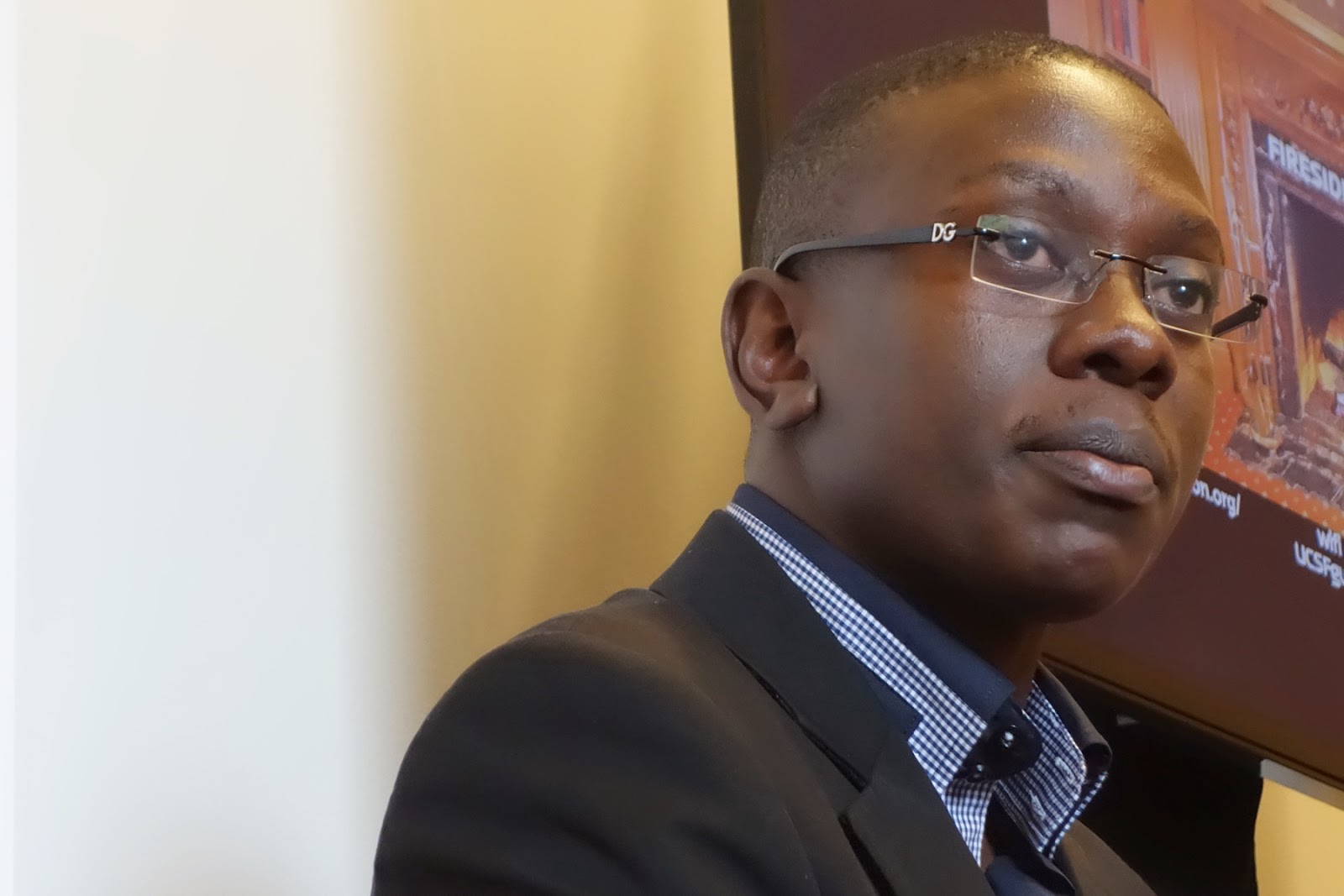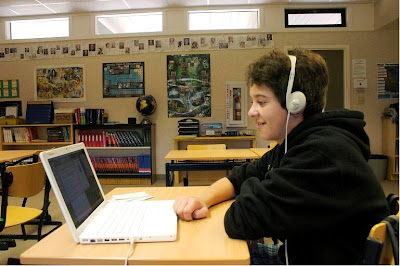Schwab Social Entrepreneurs Summit 2007
We're wrapping up an intense couple of days here in Zurich, and I take the spectacular train to Davos this afternoon. The event here in Zurich is the Schwab Social Entrepreneur Summit, where roughly a hundred social entrepreneurs get together with global leaders to advance the movement.
Sunday was a day of content aimed just at the social entrepreneurs. We discussed leadership, recruiting and succession, among other topics. This content has been driven by requests from the SEs themselves, looking for help in developing their leadership style and their organizations. Many of the SEs are senior, having been leading their organizations for longer than a decade, and many longer than that. Succession issues: how do we build an organization that will outlive our involvement, and how to approach recruiting a successor to the founder, was a session that I moderated. My panelists were Jeroo Billimoria, a serial social entrepreneur from India who founded Child Helpline in India and took it global (as well as starting three other social enterprises); Tom Friel, the Chair of Heidrick & Struggles, the global recruiting firm; Bruce Pasternak, CEO of Special Olympics (and the first CEO not from the founding Shriver clan); and Jennifer Broggini, board member from TechnoServe (member of the search committee that found successors to her father, the founder of TechnoServe).
On Monday we were joined by a dazzling array of global leaders who are interested in social entrepreneurship. Schwab Foundation board members Paolo Coehlo (the noted Brazilian author), Zanelle Mbeki (first lady of South Africa) and Hilde Schwab, the co-founder of the Schwab Foundation. Notable attendees included Larry Brilliant, the head of Google.org, Jonathan Greenblatt, founder of Ethos Water, Ron Grzywinski, founder of ShoreBank, Tim Wirth, head of the UN Foundation, Matthew Bishop of the Economist, and scores of other similar luminaries. The foundation community was also well represented, especially the Skoll Foundation. Skoll and Schwab have the two leading social entrepreneurship networks for senior practitioners, and it's great to see them working together to advance the movement.
Tuesday was kicked off by Jacques Aigran, the President of Swiss Re, the insurance company that hosted the summit at their elegant facility in Ruschlikon, a suburb of Zurich.

Aigran noted that Swiss Re was interested in several aspects of the SE field, including bringing insurance to the developing world, as well as being involved in the global warming crisis (which he feels will disproportionately hurt the poor in the developing world). Hilde Schwab declared the Schwab commitment to making social entrepreneurs better known throughout the world. Her best example was Muhammed Yunus, who is also a board member of the Schwab Foundation, who of course won the Nobel Peace prize last year. She noted that Yunus worked for twenty years before anyone in the West noticed!
Out of all the panels I attended, I especially wanted to let you know about the kickoff panel on Monday. The panel was moderated by Greg Dees of Duke University, one of the leading business school professors tracking and analyzing the social entrepreneurship movement. He pointed out that SEs are all about breaking away from charity and alms giving and focusing on pragmatic problem solving. Mirai Chatterjee of the Self Employed Women's Association in India explains social entrepreneurs as private initiatives that used business models around financial sustainability, self-help and empowerment. Her inspiration for this work included Gandhi, who of course was all about self-reliance!
Matthew Bishop of the Economist Magazine made some interesting points. He continued the theme of claiming social entrepreneurial status (we had earlier heard that insurance was an SE as well as Gandhi), by explaining that the magazine had been started in 1843 to remove trade barriers in the UK, which were hurting the poor by driving up food prices. His analysis of global entrepreneurship is that it has gone through a revolution in the last thirty years, driven by transparency and innovation in capital markets. Breakthroughs by entrepreneurs are followed by productivity improvements embedded in more traditional organizations. He foresees a continued drive towards improving effectiveness as the relationships among states, corporations and private individuals evolve. We've come to recognize the limitations of the nation state, especially around innovation. He also forecast an evolution in capital markets and a rise of intermediaries in the SE field.
Roger Martin, dean of the U. Toronto business school, talked about the need to drive new skills into the business school community, especially improving the teaching of entrepreneurship and trying to teach empathy. Bill Drayton rounded out the panel. As the founder of Ashoka, the biggest and oldest global network of social entrepreneurs, he's known as the godfather of the movement.
The final quotes are from the man of the hour, Larry Brilliant, the new head of Google.org. Everyone in the SE movement is waiting to hear more about his vision for Google.org, since anything seems possible for Google. Larry described his ten months at Google as drinking from a firehose, and explained:
He also announced that Microsoft (and I think Yahoo!) and Google are planning to work together in the area of disaster preparedness.
It was a gratifying couple of days, and I've only scratched the surface. But, tonight I'll be in Davos and getting ready for the next phase of this trip!
Sunday was a day of content aimed just at the social entrepreneurs. We discussed leadership, recruiting and succession, among other topics. This content has been driven by requests from the SEs themselves, looking for help in developing their leadership style and their organizations. Many of the SEs are senior, having been leading their organizations for longer than a decade, and many longer than that. Succession issues: how do we build an organization that will outlive our involvement, and how to approach recruiting a successor to the founder, was a session that I moderated. My panelists were Jeroo Billimoria, a serial social entrepreneur from India who founded Child Helpline in India and took it global (as well as starting three other social enterprises); Tom Friel, the Chair of Heidrick & Struggles, the global recruiting firm; Bruce Pasternak, CEO of Special Olympics (and the first CEO not from the founding Shriver clan); and Jennifer Broggini, board member from TechnoServe (member of the search committee that found successors to her father, the founder of TechnoServe).
On Monday we were joined by a dazzling array of global leaders who are interested in social entrepreneurship. Schwab Foundation board members Paolo Coehlo (the noted Brazilian author), Zanelle Mbeki (first lady of South Africa) and Hilde Schwab, the co-founder of the Schwab Foundation. Notable attendees included Larry Brilliant, the head of Google.org, Jonathan Greenblatt, founder of Ethos Water, Ron Grzywinski, founder of ShoreBank, Tim Wirth, head of the UN Foundation, Matthew Bishop of the Economist, and scores of other similar luminaries. The foundation community was also well represented, especially the Skoll Foundation. Skoll and Schwab have the two leading social entrepreneurship networks for senior practitioners, and it's great to see them working together to advance the movement.
Tuesday was kicked off by Jacques Aigran, the President of Swiss Re, the insurance company that hosted the summit at their elegant facility in Ruschlikon, a suburb of Zurich.

Aigran noted that Swiss Re was interested in several aspects of the SE field, including bringing insurance to the developing world, as well as being involved in the global warming crisis (which he feels will disproportionately hurt the poor in the developing world). Hilde Schwab declared the Schwab commitment to making social entrepreneurs better known throughout the world. Her best example was Muhammed Yunus, who is also a board member of the Schwab Foundation, who of course won the Nobel Peace prize last year. She noted that Yunus worked for twenty years before anyone in the West noticed!
Out of all the panels I attended, I especially wanted to let you know about the kickoff panel on Monday. The panel was moderated by Greg Dees of Duke University, one of the leading business school professors tracking and analyzing the social entrepreneurship movement. He pointed out that SEs are all about breaking away from charity and alms giving and focusing on pragmatic problem solving. Mirai Chatterjee of the Self Employed Women's Association in India explains social entrepreneurs as private initiatives that used business models around financial sustainability, self-help and empowerment. Her inspiration for this work included Gandhi, who of course was all about self-reliance!
Matthew Bishop of the Economist Magazine made some interesting points. He continued the theme of claiming social entrepreneurial status (we had earlier heard that insurance was an SE as well as Gandhi), by explaining that the magazine had been started in 1843 to remove trade barriers in the UK, which were hurting the poor by driving up food prices. His analysis of global entrepreneurship is that it has gone through a revolution in the last thirty years, driven by transparency and innovation in capital markets. Breakthroughs by entrepreneurs are followed by productivity improvements embedded in more traditional organizations. He foresees a continued drive towards improving effectiveness as the relationships among states, corporations and private individuals evolve. We've come to recognize the limitations of the nation state, especially around innovation. He also forecast an evolution in capital markets and a rise of intermediaries in the SE field.
Roger Martin, dean of the U. Toronto business school, talked about the need to drive new skills into the business school community, especially improving the teaching of entrepreneurship and trying to teach empathy. Bill Drayton rounded out the panel. As the founder of Ashoka, the biggest and oldest global network of social entrepreneurs, he's known as the godfather of the movement.
The final quotes are from the man of the hour, Larry Brilliant, the new head of Google.org. Everyone in the SE movement is waiting to hear more about his vision for Google.org, since anything seems possible for Google. Larry described his ten months at Google as drinking from a firehose, and explained:
This is the morally most challenging moment in my life,
but I've never felt more alive!
He also announced that Microsoft (and I think Yahoo!) and Google are planning to work together in the area of disaster preparedness.
It was a gratifying couple of days, and I've only scratched the surface. But, tonight I'll be in Davos and getting ready for the next phase of this trip!



Comments